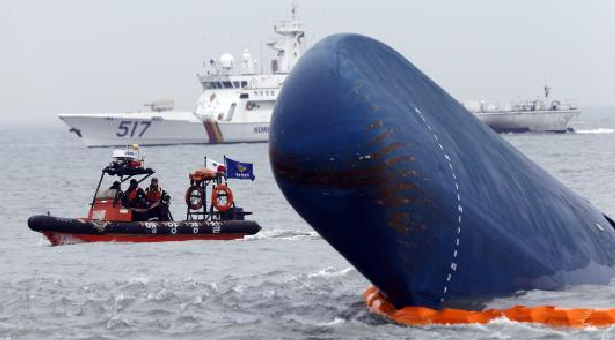
The cause of one the worst maritime disasters in South Korea’s history is likely to remain a mystery.
This week, an eight-member panel appointed by the South Korean government to investigate the 2014 capsizing and sinking of the Sewol ferry released its findings from the investigation, failing to pinpoint an exact cause.
Instead, the panel concluded that the sinking could have been due to problems with the ship, such as a sudden turn, excessive cargo load, or stability or buoyancy issues created by substandard refurbishing, or external factors, such as collision with a submarine or other unknown objects, Yonhap News reported.
Investigators have said previously that the ferry was structurally unsound, overloaded and traveling too fast on a turn when it capsized on April 16, 2014 off the southwestern tip of South Korea, killing 304 people. Most of the victims were children attending a high school field trip.
The accident left the nation in mourning for months and led to the disbanding of the South Korean Coastguard, which was criticized for botching the rescue.
Salvors raised the ship in March 2017 to help with the investigation.
The panel submitted its investigation report to President Moon Jae-in and decided to preserve the wreckage for the time being.
The ferry captain was found guilty of homicide in 2015 and sent to prison for life. More than a dozen other crewmembers received shorter terms.
Last month, a South Korean court ordered the government to pay the families of the victims, marking the first acknowledgment of the government’s liability in the disaster.